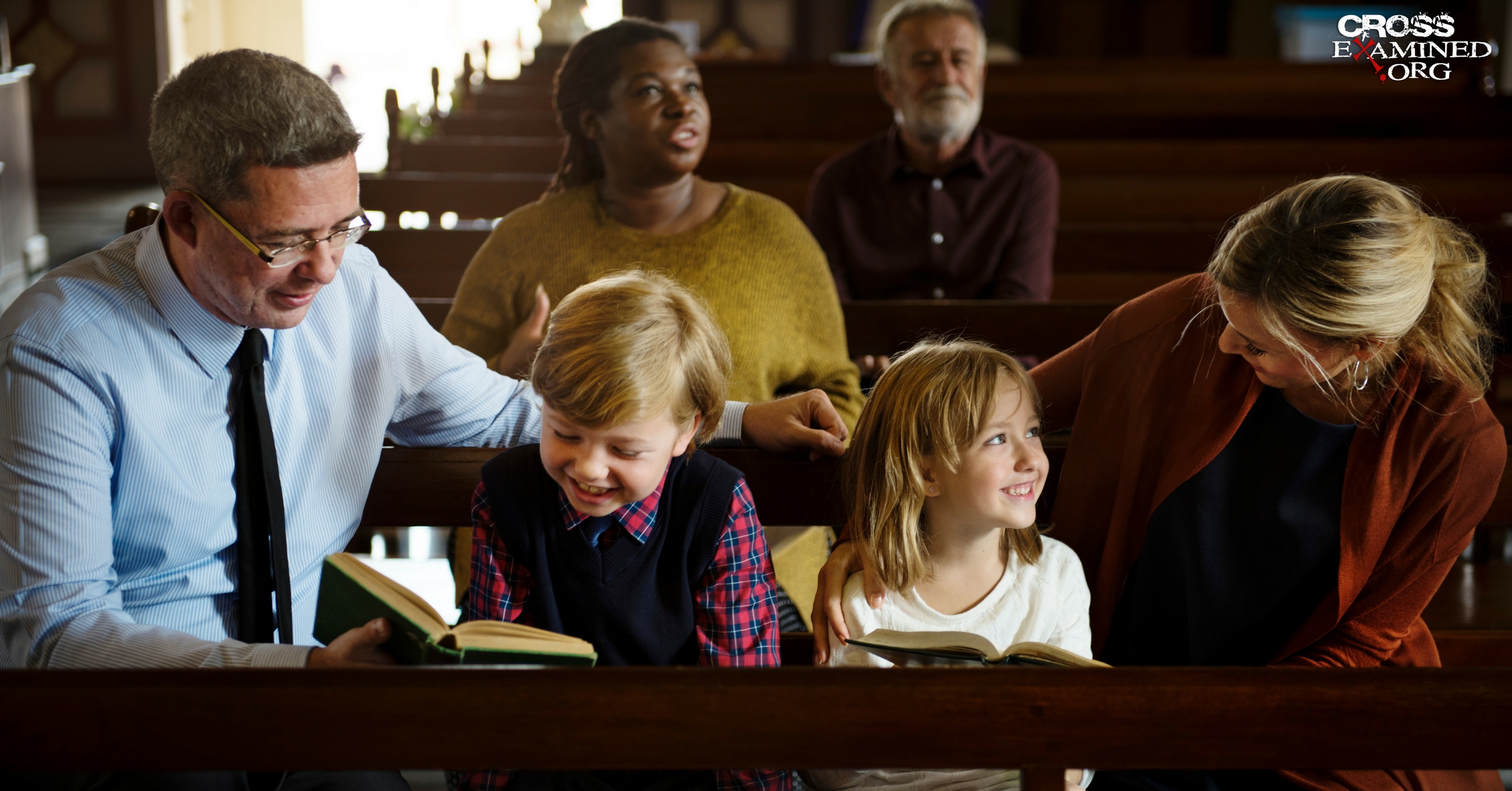By Al Serrato
To the skeptic, most Christians – certainly most who appear willing to “defend” their faith – may seem a bit one-dimensional, perhaps in some cases fanatical. They seem so convinced of their views, regardless of how bizarre some of these views seem to the unbeliever. Many conclude, then, that the believer is simply biased in favor of what he wants to believe. He has accepted a “bill of goods” without having struggled over where best to place his trust.
But this is not an accurate description of the faith journey of many believers. Indeed, most go through a period of doubt in which they struggle with what they were taught in childhood. That was certainly my experience. Having been raised in the Catholic Church, I was taught doctrines and rituals which were both mysterious and comforting. Until I began law school, though, these beliefs went largely unchallenged, leaving me unprepared to defend what I thought was “the truth.” Encountering highly intelligent people who were not afraid to point out why they viewed my faith as foolish, I began to believe that all religions were pretty much the same – they could provide comfort, but they weren’t really true. Truth, after all, was a relative concept, dependent on one’s point of view and cultural narrative. And science had pretty much shown that there isn’t a need for God. While faith might make a good crutch when bad things happen, it probably did more harm than good in the long run, because it was at odds with reason. These conclusions just happened to coincide with an increasing desire to put the restrictions of Christianity behind me and to put aside whatever feelings of guilt would arise from time to time.
As I look back on it now, I realize that despite my upbringing, I did not actually have a bias to believe in Christianity. My bias, as I was discovering, was to take the path of least resistance. As a practicing Christian, I needed to conform my behavior to something outside myself, depriving me of a certain amount of freedom. Removing the restrictions of religion would allow me to remain “moral” but would also allow me to define morality any way I chose. After all, with no law-giver, there was no reason to comply with rules that I did not make for myself.
Since I knew many believers, I would raise these issues with them, hoping that they could respond to my challenges. Most, unfortunately, would talk about faith as a feeling or remind me that the Church’s teachings were infallible. They would suggest that my skepticism was not pleasing to God and raise the specter of eternal punishment. In short, they were telling me that I was wrong, but not why I was wrong. I would just have to take it “on faith.” They were wrong: I wasn’t persuaded by discussions of how faith would make me “feel” (I already felt good in church) or with threats of hell for failing to follow someone else’s rituals. I also wasn’t satisfied with “infallible teachings.” If in fact the world was broken down into “faith” and “reason” – as my law school friends maintained – then I knew I would side with reason.
I thought this conclusion would satisfy me, but in the end, it did not. Two things continued to nag at me. The first was this concept of truth. As a criminal investigator and then a prosecutor, I had chosen a field in which truth actually mattered. After all, it just wasn’t okay to get a conviction if I had the wrong guy. I became increasingly fascinated with and drawn to the concept of objective truth. From my legal training, I also had developed a strong interest in reason. Concepts such as “the reasonable person” standard and proof beyond a “reasonable doubt” showed that the thinkers who laid the foundation for the orderly society we developed put a great amount of stock in the mind’s ability to reason to a just result. I didn’t know how this applied to religion, and I still suspected that no one religion had the corner on truth, but I made a commitment to myself that I would follow truth where it led. In other words, I realized that I had some strong motivations to ignore the truth, especially when it seemed inconvenient, and I made a promise to myself that I would seek the truth and submit to it, to the best of my ability.
The second problem nagging at me was with the notion that only simpletons adhered to religion. As I learned more about history, I realized that some of the greatest and most powerful thinkers in history grappled with the same questions that troubled me and that they concluded that there is, in fact, a God and that he is the God described in the Bible. These included not just philosophers, but also the scientists who essentially developed what we recognize today as Western science. The more I learned, the more I realized that treating religious belief as an “opiate for the masses” just wouldn’t fly. There was something there, and I wanted to find out what it was.
In sum, then, my journey began with faith and that faith ran into a brick wall that I thought was “reason.” It ended with the realization that the dichotomy between faith and reason was in fact false. The two are in fact compatible. Christianity was never based on wishful thinking, nor is it dependent solely on “faith.” Instead, it was based on specific truth claims about events which occurred in history, and which were verifiable. This evidence supports a conclusion that Jesus rose from the dead, providing a rational basis to place one’s faith in his message of salvation.
Sadly, the nonbeliever accuses those who have taken this journey of having a closed mind. Quite the contrary is true: while my mind is open – to receiving and evaluating new evidence – given what I have seen so far, I am not ambivalent. Can the skeptic say the same?
It is also worth noting that remaining perpetually “on the fence” – unwilling to reach a firm conclusion – brings with it risks as well. In my next post, I will attempt to lay out just what those are.
Original Blog Source: http://bit.ly/2Av6bXX



